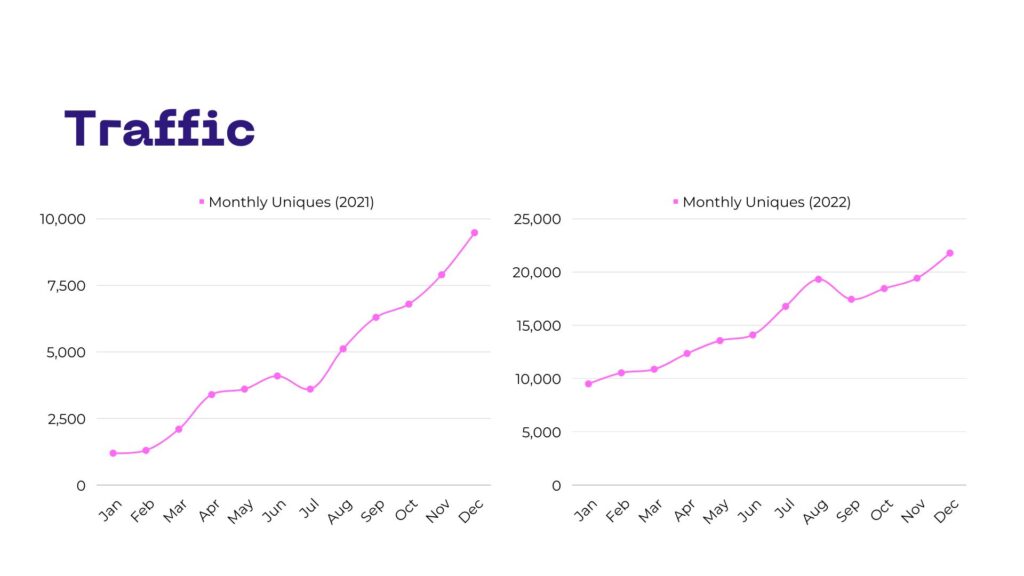Introduction
SEO, often known as search engine optimization, is crucial for marketers. By optimizing your web pages, including your blog entries, you can increase the visibility of your website to users who are searching for your goods or services on search engines like Google. In order to achieve the objective, the following tips are very important for your blog.
Content is king
The most crucial element in search engine optimization for blogs is the quality of the content that you produce. Others may disagree, but based on how well my own blog has performed in the search engines, I’d think this is the most important component.
A reader who reads helpful content frequently wants to share it with others. Of course, they do this by sharing the post’s link, and frequently they’ll do it in a way that boosts your search rankings (on their own blog for example).
You should consider what information people search for in search engines such as Google. With this in your mind, you will prepare content to suit their search.

Title
Write something catchy that includes your core keyword in the headline of your post with SEO in mind.
Don’t use your blog name in the title tags of individual entries if you’re only considering SEO. This muddles your keywords. However, if branding is more important to you, using your blog’s name in the title tags can be a good idea.
the words you use at the beginning of a title tend to carry more weight than words you use later in your title.
Keywords
A keyword is the simplest yet most important component of your blogging approach. You may learn more about the types of search queries visitors are using to get solutions to their issues by choosing the right keywords for your blog.
The right keyword is found while conducting keyword research, and they are selected based on a combination of search volume, competition, and business intent. Include 3-4 keywords in the content of your blog with a total number of words between 800 to 1000.
The act of cramming a webpage with too many in an effort to artificially inflate a site’s rating in Google search results is known as “keyword stuffing.” These terms frequently appear in lists, groups, or out of context. Hence, it should be avoided.
Internal links
While links from other websites are important to raise a blog’s ranking, links from your blog are also a great way to do so. When appropriate, interlink your posts to let readers know where they can get more information on the subject, but you should also think about linking to important blog entries from other locations (sidebar, front page, etc).

External links
While important for SEO, links from other high authority websites to your blog can be challenging to obtain. Start establishing links from other websites you own or are active on to your blog. Although some of them (like on Twitter) have no-follow tags, they are all potentially effective ways for visitors to access your site, and some of them will aid in SEO.
Instead of becoming concerned with obtaining connections, focus on generating excellent content, and the links will usually appear in due course. But if you’ve published a fantastic article that you believe will be pertinent to another blog, don’t be hesitant to let that blogger or website owner know about it; they could choose to link up.
Take note of the posts you produce that are effective at attracting links from other websites. By doing this, you can pick up a lot of knowledge about creating linkable content and you can even discover a method that consistently produces quality material.
Plugins
Keep track of the articles you publish that are successful at luring links from other websites. You can learn a lot about producing linkable content by doing this, and you might even find a technique that regularly results in high-quality content.
Blog help to connect with the audience
When your readers come upon an article they enjoy, they are more likely to share it, increase traffic to it, visit your website again to view further content, and perhaps even subscribe to your email list. As a result of your website receiving a lot of traffic and returning visitors, Google will give you more authority points in their algorithm.
And while that’s wonderful from an SEO standpoint, the success of your website ultimately depends more on this than it does on your position in the rankings. More valuable than any #1 Google ranking (which is why you want it in the first place) are people in your target market who visit your website, interact with it, and follow it regularly.
A blog is a useful tool for establishing such connections and engagement with the target audience.
Conclusion
It seems that Google is finding more and more ways to determine whether your information is reliable. These days, they own Feedburner (which allows them to know how many people subscribe to your blog and what links people are clicking on), Google Reader (which again provides them with tonnes of great data), Gmail, Google Analytics, YouTube, etc. It’s not just about what keywords you have or how many links you get. They might or might not utilize all the information in their site rankings, but they might surely know a lot about your blog and the articles you produce. Additionally, there has been an increase in discussion about how simple it would be for search engines to begin gathering data on the information that is being shared on social networks and bookmarking websites.


